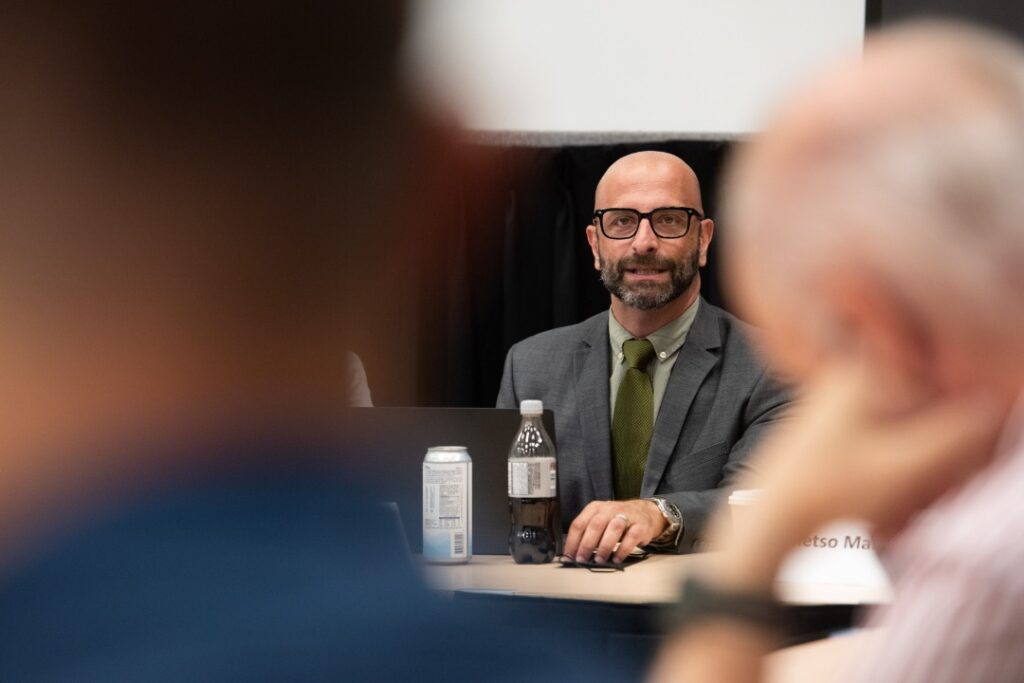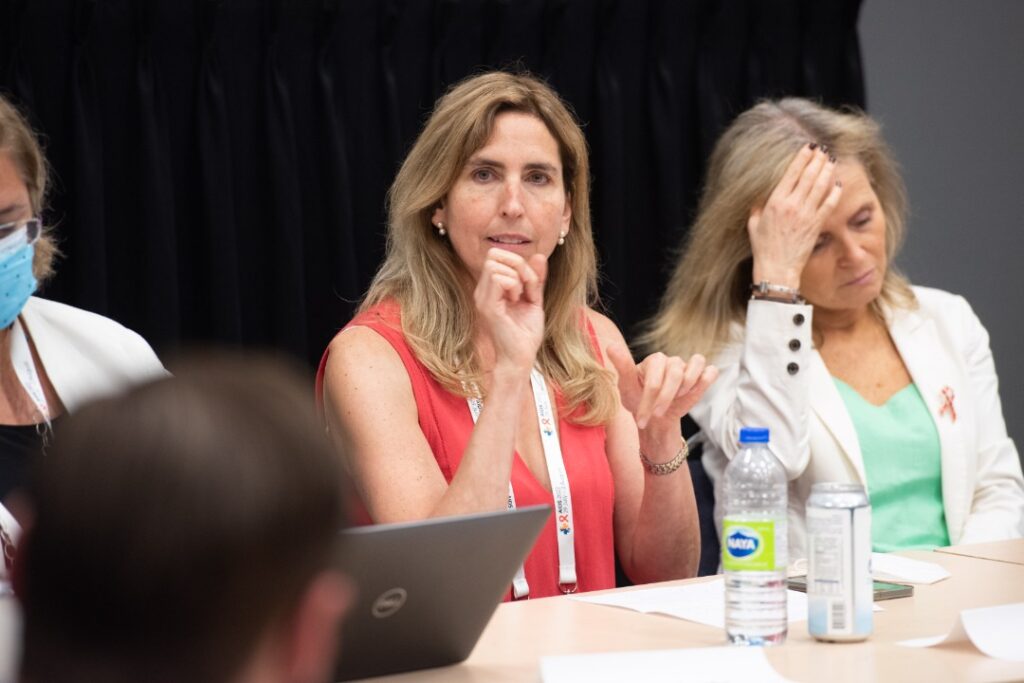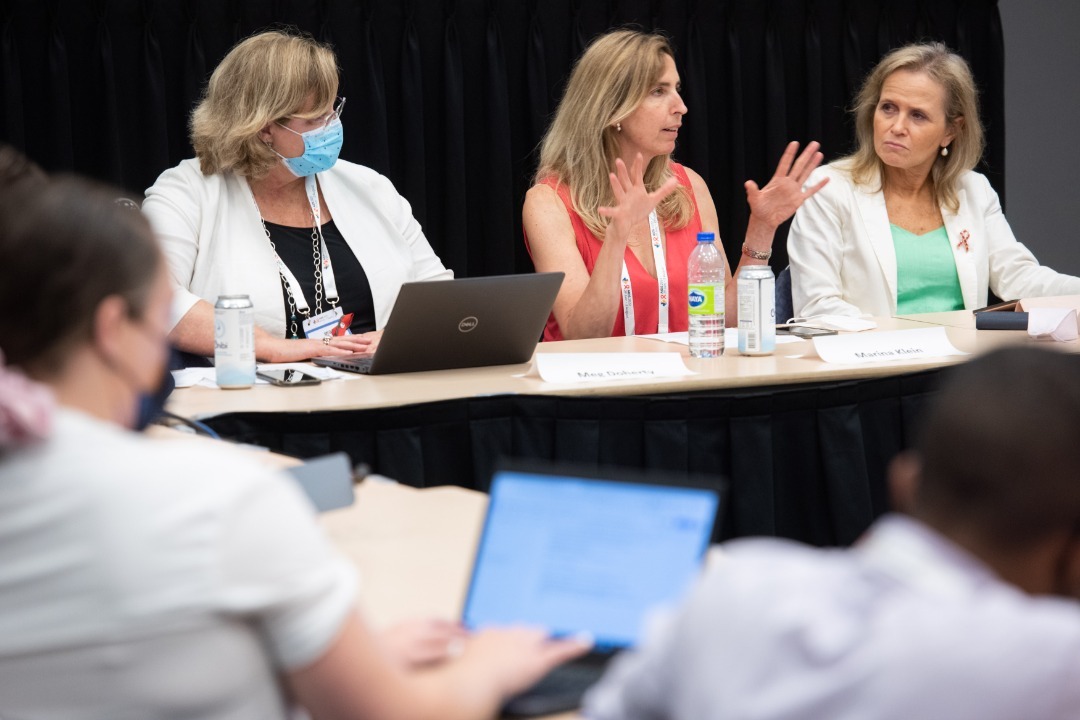MONTREAL, August 2 – Thirty-five countries have requested access from the World Health Organization (WHO) to a monkeypox vaccine, with the current global outbreak expected to soon exceed 20,000 cases across 78 nations, a WHO official said.
Dr Meg Doherty, director of global HIV, hepatitis and STI programmes at WHO, said there are currently 16.4 million doses of Jynneos, the only vaccine approved by the United States’ Food and Drug Administration (FDA) to prevent monkeypox infection.
According to Dr Doherty last Sunday, some 19,000 monkeypox cases have been officially recorded globally – with the number expected to top 20,000 – while seven deaths have been reported to date (three in Nigeria, two in Central African Republic, two in Spain, and one in Brazil).
“We have 16.4 million doses in bulk that exist, and we have 35 member states who are requesting access,” Dr Doherty told a media roundtable on monkeypox at the 24th International AIDS Conference (AIDS 2022) here on July 31.
The WHO official did not list the 35 countries that are requesting for the Jynneos vaccine, produced by Denmark-based biotech company Bavarian Nordic, and could not immediately say if Malaysia is among them.
“There’s another vaccine out of Japan; this is right now in Japan only, and there are ongoing discussions around expanding access to outside Japan,” Dr Doherty added.
Jiji Press reported that an expert panel of Japan’s health ministry approved Friday the use of a smallpox vaccine by KM Biologics, a unit of Japanese food and pharmaceuticals company Meiji Holdings Co, to protect against monkeypox.
The smallpox vaccine, according to the ministry, is about 85 per cent effective in preventing monkeypox infection.
Dr Doherty said although there are 100 million existing doses of the ACAM2000 vaccine – which is approved by the US’ FDA for use against smallpox and has been made available for use against monkeypox – the shot will be the least likely vaccine used by countries due to potential side effects.
According to the US’ Centers for Disease Control and Prevention (CDC), the ACAM2000 vaccine should not be used in people with certain health conditions, such as a weakened immune system, skin conditions like eczema or other exfoliative skin conditions, or pregnancy.
When Science magazine senior correspondent Jon Cohen questioned the panel on why the CDC, WHO, or researchers in Montreal, Canada, or the UK have not organised studies on the effectiveness of Jynneos as a post-exposure vaccine, Dr Doherty said the WHO is pooling together a group of experts and is meeting on August 2 on a core protocol for monkeypox vaccination.
In response to CodeBlue’s question on whether WHO foresees problems of rich countries hoarding monkeypox vaccines like what happened with Covid jabs during the pandemic, Dr Doherty acknowledged there was a “possible risk”.
“We want equity,” she stressed.
“We can’t have a monkeypox response that’s only responding to the UK, Canada, US. We need a monkeypox response that also addresses what’s happening in DRC, Nigeria where cases are going up, and we’re hearing cases around the world starting to go up.
“That’s our goal.”
Malaysia has yet to report a confirmed monkeypox case, though Singapore has reported 11 monkeypox cases as of Sunday, one in the Philippines reported Friday, and two in Thailand as of last Thursday.
US Short Of Monkeypox Vaccine

Dr Demetre Daskalakis, director of the division of HIV prevention at the CDC, said 4,560 monkeypox cases have been reported in the US as of July 27 at 2pm.
The vast majority of infections, he said, is among gay, bisexual and other men who have sex with men (MSM).
America is currently using the Jynneos vaccine that has been rolled out in several phases, with around 310,000 doses distributed across the country.
“That’s not enough,” Dr Daskalakis told the media roundtable. “We have estimates on how many gay, bisexual and other men who have sex with men can benefit from vaccination, it’s somewhere around 1.5 to 1.7 million.”
He said this is based on estimates of candidates for pre-exposure prophylaxis (PrEP), a medication that prevents HIV; the number of people who have filled up applications for PrEP; and MSM who are living with HIV in the US.
Dr Daskalakis also said that the CDC’s current guidance for Jynneos is a two-dose regimen taken four weeks apart.
“The current knowledge, there’s some animal data and other initial data, is that protection is reached about 2 weeks after the second dose.”
The US’ monkeypox strategy also involves treatment and testing. On treatment, Dr Daskalakis said the CDC has simplified the process to access Tpoxx, an antiviral medication approved for smallpox that is also a treatment option for monkeypox.
The US was also able to significantly boost testing for monkeypox, from 8,000 tests a week through CDC’s public health laboratories to now 80,000 tests because of commercial availability through five commercial providers.
Dr Daskalakis said the CDC continues to have engagements with health care providers and organisations representing gay, bisexuals and other MSM.
“So we continue to get the important information that we need to further nuance messaging as well as our response.”
He expressed gratitude to the HIV infrastructure that the CDC is leveraging on to engage on monkeypox in a way that’s familiar to people who work in HIV.
“Though I think we have a lot of challenges, I also think we have a lot of opportunity to enhance the work we do in public health, specifically among gay, bisexual and other men who have sex with men.”
Many Unanswered Questions About Monkeypox Transmission

Dr Marina Klein, research director and professor of medicine at the division of infectious diseases/ chronic viral illnesses service at McGill University in Montreal, said it is still unclear exactly how the monkeypox virus is transmitted.
“We don’t actually know. We know where it can be in certain circumstances, but not all the circumstances,” Dr Klein told the media roundtable.
“Can it be transmitted when people have very few symptoms? More increasingly, people say ‘I have no idea how I was exposed to this virus, I only had one contact, I had no symptoms’. Can it be transmitted in the early phase? We don’t know.
“How long can it be transmitted after lesions resolve, or can it be transmitted until lesions resolve? Can it be transmitted through respiratory droplets? These are crucial critical questions we need to answer very quickly, otherwise we’ll never get on top of this.”
Monkeypox Transmission Mostly From Gay, Bisexual, Other MSM

Dr Doherty said 98 per cent of data reported to the WHO shows that those who have monkeypox say that they are MSM, gay or bisexual men.
“That seems to be one of the major routes.”
She also said data show very limited but some monkeypox cases in women, children, and health care workers.
“But it does not appear there’s a major secondary transmission to health care workers, or we would have expected to see many more beyond that.”
WHO director-general Tedros Adhanom Ghebreyesus declared last month the current monkeypox outbreak to be a public health emergency of international concern (PHEIC), the highest level of alert, side-stepping a committee of independent advisers who were unable to reach a consensus on whether the outbreak should be designated PHEIC.
Dr Doherty explained that Tedros’ decision – the first time a WHO director-general side-stepped advisers to declare a public health emergency – was based on the fact that the monkeypox outbreak fulfilled three criteria: an extraordinary event, a public health risk to other member states, and that it needed a coordinated response.
“Our role as WHO is to really ensure that we’re working on a coordinated response for all the counter measures or the tools that are needed to be able to be addressed in the outbreak,” she told the media roundtable.
“We have taken a really strong stance to address the outbreak that’s happening right now in North America and Europe and Latin America around men who have sex with me, but also to make sure that we’re not forgetting the outbreak that’s increasing in the traditional countries of monkeypox in western and central Africa.”








